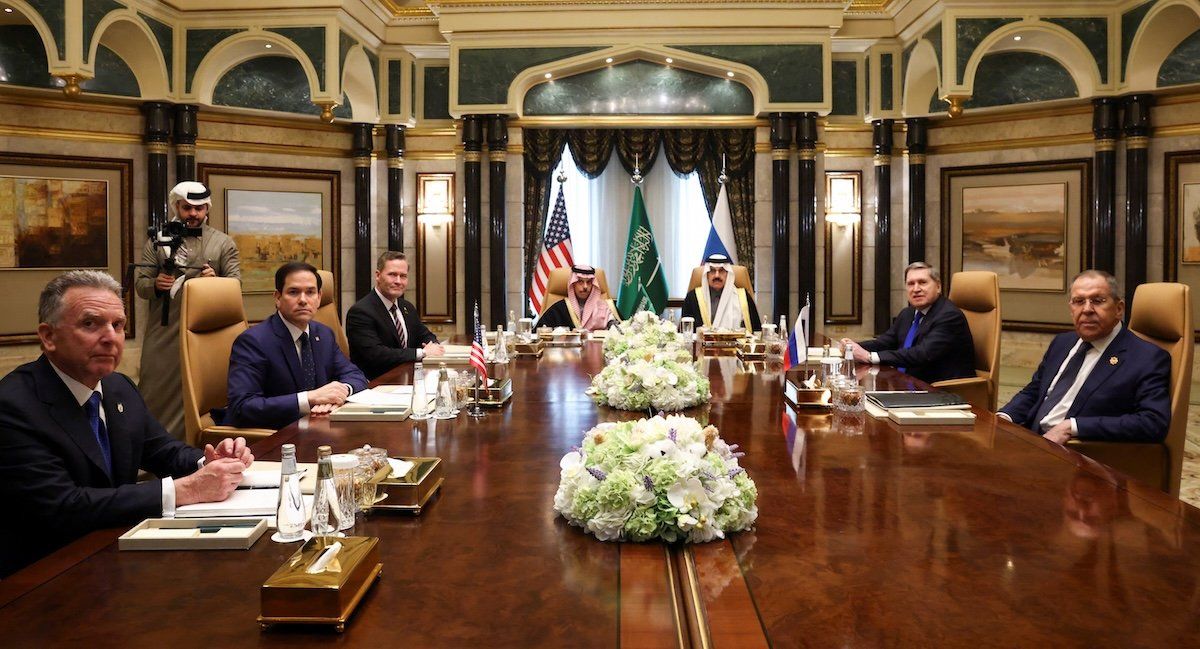Saudis host US-Russia talks, Europe holds emergency meeting on Ukraine
Before Tuesday’s meeting in Saudi Arabia between US and Russian officials to discuss the war in Ukraine and business dealings between the countries, French President Emmanuel Macron convened an emergency meeting in Paris of European leaders on Monday to discuss Ukraine. Neither Europe nor Ukraine were invited to Tuesday’s talks in Riyadh – and Ukrainian President Volodymyr Zelenskywas not even formally advised discussions were taking place.
What did European leaders agree on? The gathering wrapped Monday evening with a tweet by European Commission president Ursula von Leyen that “Ukraine deserves peace through strength” – but without any consensus about what that peace would look like. UK Prime Minister Keir Starmer expressed willingness to contribute peacekeeping troops, contingent upon a US security guarantee, but Polish President Donald Tusk ruled out sending Polish troops before the meeting even began. German Chancellor Olaf Scholz called a discussion of peacekeepers “completely premature” and “highly inappropriate” while the war is ongoing. Scholz also opposed any agreements being made without European or Ukrainian involvement.
What might a deal look like? “It is not yet clear what the US and Russia will be able to agree to or even what the agenda will look like” in Tuesday’s meeting, says Eurasia Group analyst Alex Brideau. “Russian officials have indicated they will be pushing for a broader deal that includes ending the Ukraine war on their terms, along with the resolution of a number of other outstanding security-related grievances. Trump’s main declared goal is to end the war quickly.”
We do know that while the Trump administration doesn’t want the Europeans at the table, it expects Europe to shoulder some of Ukraine’s support. Last week, Defense Secretary Pete Hegseth said the US could reduce the number of troops in Europe as part of the deal with Moscow and that any Ukraine peacekeeping force should lack the protection of NATO’s Article 5. He also signaled that a return to Ukraine’s pre-2014 borders would not happen – meaning that a sixth of Ukraine’s territory could be ceded to Russia.
But that doesn’t mean that Ukraine or Europe will agree to anything the US or Russia negotiate. “Zelensky has made clear he will not accept a deal reached without Ukraine and Europe’s participation,” says Brideau. “He and European leaders will, therefore, be working to ensure that Trump brings them into the discussions and takes their views into account,” noting that they view transatlantic unity as key to the future of any peace deal.
